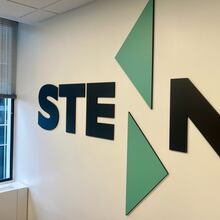On the hottest days of summer, big jets leaving Atlanta's airport for faraway international destinations sometimes can't carry a full load of cargo and passengers. The reason: the plane would be too heavy to get off the ground safely.
Hartsfield-Jackson International aims to fix that issue by extending its longest runway another 500 feet, in a $45.5 million project that will allow planes to carry more fuel to fly longer distances.
Airport officials say the cost is justified by enabling new nonstop international routes and allowing airlines to carry more passengers, baggage and cargo on existing routes to Europe and Asia.
"The longer runway helps [airlines] on the hotter days in the summer, and that's when the peak travel time is, too," general manager Louis Miller said. Stretching the runway from 11,890 to 12,390 feet will make the airport "much more competitive," Miller said. The extension is expected to improve the airport's competitive standing against airports in Miami, Chicago and New York.
Atlanta-based Delta Air Lines spokesman Trebor Banstetter said the runway extension will help Delta continue its use of Atlanta as an international gateway and expand its cargo capability. Delta operates Boeing 777 and Boeing 747-400 jumbo jets -- among the types expected to most benefit from the runway extension.
The crux of the issue is that the hotter the air, the less dense it is. To compensate for lower air density, the aircraft needs to reach a higher rolling speed before taking off to get the same amount of lift -- requiring more runway. The length of runway required depends on temperature, altitude, humidity and other factors, which is why some airports at higher altitudes need even longer runways.
Airports with longer runways than Atlanta include Denver, which has a 16,000-foot runway, followed by New York, Las Vegas, Dallas-Fort Worth, Chicago and Miami.
The length of runway needed also depends on distance to the destination, said airline consultant Bob Mann, of Port Washington, N.Y.
"An hour closer is 10,000 pounds of fuel closer," which allows the airline to put 10,000 pounds more cargo on the plane, he said.
A longer runway makes Atlanta more competitive for flights to Asia with other hubs that are farther west, Mann said.
When temperatures in Atlanta exceed 86 degrees, about 750 aircraft each year using Runway 27R could carry a greater load if the runway were longer, according to an environmental assessment report for the project.
In a worst-case scenario, passengers may be denied boarding or bags or cargo may be left behind when an airline needs to reduce weight, the report said. That affects customer service and revenue for the airline.
The runway extension has been planned for years. Some residents of College Park and East Point who expressed concern that the extension could bring more large jets and more noise.
"East Point is being bombarded with noise from the airport," said East Point city councilman Clyde Mitchell.
But after a comment period and a public hearing in 2009, the FAA issued a decision that summer saying that the extension has no significant impact on the environment, including noise.
The first phase of the runway extension project -- site preparation -- is underway and is scheduled to be completed this summer. The airport will soon issue a contract for the second and final phase -- paving and lighting -- to be completed next summer.
During part of the construction, the runway will actually have to be shortened for construction. The airport is aiming to keep that period of time short to minimize the effects on airline operations.
The project is being funded with passenger facility charges -- the $4.50 each passenger pays on top of their fare to depart from Hartsfield-Jackson -- and possibly with a grant from the federal Airport Improvement Program.
About the Author





